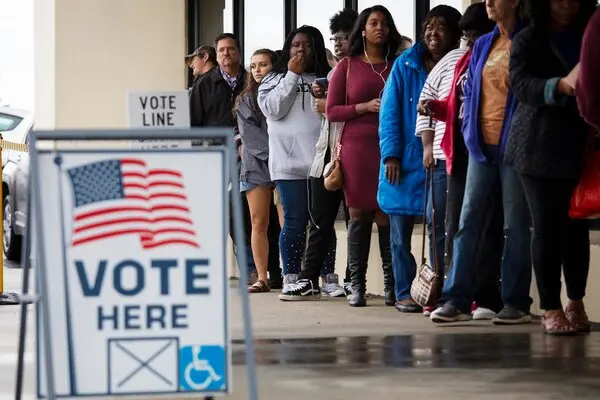By Shannon Bond
Last week, a video began circulating on X, formerly Twitter, purporting to show a person in Pennsylvania ripping up ballots marked for former President Donald Trump and leaving alone those marked for Vice President Harris.
The person curses the former president multiple times and at one point says, “Vote Harris.”
The video is a fake. The envelopes and ballots shown don’t match what that county actually uses to vote. U.S. officials said it was created and spread by Russia to sow doubt in the election.
But the incident showed what has been clear for some time now: Online in 2024, the deck is stacked against voting officials, maybe even more so than in 2020. The phony video was viewed hundreds of thousands of times shortly after it was posted. A statement from Bucks County debunking it three hours later was shared on X fewer than 100 times.
“They’re fighting an uphill battle,” said Darren Linvill, co-director of Clemson University’s Media Forensics Hub, which tracks election influence campaigns. “I’m sure that they often feel like they’re trying to put their finger in the dike before it bursts.”
Linvill traced the video back to a Russian propaganda operation, first identified by Clemson, that has also spread faked videos targeting Harris and her running mate Tim Walz in recent weeks.
With less than a week left of voting, the election cycle has entered a fraught stage in which rumors, misleading claims and conspiracy theories are surging. And election administrators, intelligence officials and researchers don’t expect that to end when polls close. They are bracing for what is expected to be a contentious period of counting and certifying votes, in which discord fueled by foreign and domestic sources could be corrosive to democracy.
Perhaps the biggest factor is former President Donald Trump, who continues to falsely assert he won the 2020 election, despite courts and investigations finding no evidence of fraud. He has already set the stage to reject the results should he lose again this year.
“If I lose — I’ll tell you what, it’s possible. Because they cheat. That’s the only way we’re gonna lose, because they cheat,” Trump said at a September rally in Michigan.
Despite the lack of evidence, his claims have been embraced by many Republicans and eroded confidence in voting among a wide swath of Americans.
“We’ve already set the standard that you are allowed to doubt the results on Election Day,” said Linvill. “And that just doesn’t bode well.”



